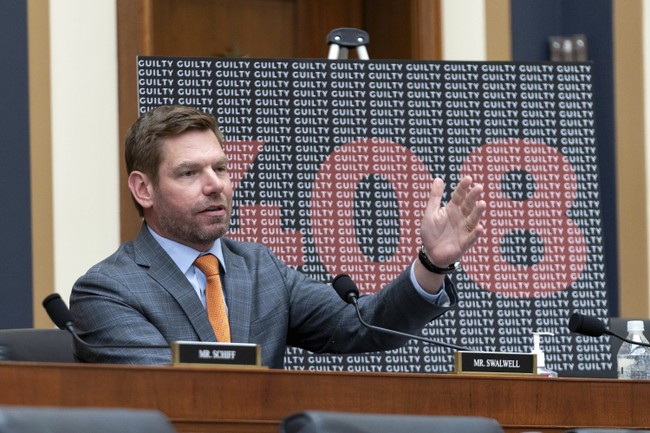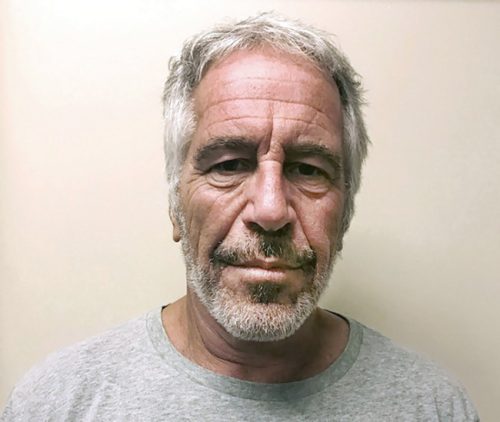Rep. Eric Swalwell has been referred to the U.S. Department of Justice over allegations that he misrepresented which of his homes were primary residences, and the move has ignited sharp political pushback and broader questions about how such cases are handled.
A referral to the Department of Justice means federal prosecutors will decide whether to bring charges, and that development landed squarely on Rep. Eric Swalwell, D-CA. The allegation centers on mortgage paperwork tied to properties in California and Washington, D.C., and whether both were claimed as primary residences at different times. That kind of claim can affect loan terms, tax treatment, and eligibility for certain deductions, so the stakes are real beyond political theater.
According to reports, investigators say Swalwell listed both homes as primary residences when applying for mortgages or refinancing, a claim that opponents say could amount to mortgage fraud. Those who study mortgage law note that lenders expect accurate statements about occupancy because it changes the underwriting analysis. If a borrower signs documents that knowingly misstate facts to gain a financial benefit, that can trigger civil or criminal exposure depending on intent and evidence.
Supporters say referrals are not charges and that political targeting is common in high-profile cases. Critics counter that referrals themselves are significant, indicating someone outside Congress found enough concerns to escalate. The normal path from referral to indictment is deliberate: the DOJ reviews the file, seeks more evidence if needed, and then decides whether prosecution is warranted.
Rep. Eric Swalwell’s $1.2 million DC home target of DOJ mortgage fraud criminal referral https://t.co/wmJmlp88WN pic.twitter.com/RD7OLwTS8O
— New York Post (@nypost) November 13, 2025
The congressman pushed back hard, saying the whole episode is political from top to bottom. Swalwell framed the referral as retaliation and drew a direct line to his public opposition to former President Trump. That framing has predictable effects: it rallies his base while giving Republicans fresh lines to question one-party handling of investigations.
He made his stance bluntly and with a broad cast of targets in mind. “As the most vocal critic of Donald Trump over the last decade and as the only person who still has a surviving lawsuit against him, the only thing I am surpirsed about is that it took him this long to come after me,” Swalwell said in a social media post. Those words landed exactly as written and were meant to turn the story toward partisan reprisal rather than legal merits.
Swalwell doubled down on a larger theme about fear and consequence in public life. “Like James Comey and John Bolton, Adam Schiff and Lisa Cook, Letitia James and the dozens more to come – I refuse to live in fear in what was once the freest country in the world,” Swalwell said. That invocation of other figures pulls this out of a narrow legal box and into a broader argument about politics and prosecution.
Other Democrats spoke in his defense and urged caution until the facts are fully vetted. Many urged the press and the public not to treat a referral like a conviction, stressing due process and the need for a thorough review. At the same time, some Republicans used the referral to argue for consistency in how allegations against public officials are handled.
Other Democrats defended Swalwell.
There is precedent for politically charged mortgage investigations; past administrations have seen probes touch figures on both sides of the aisle. Trump-era inquiries and reporting included scrutiny of Democratic figures at high levels, and opponents now point to those cases as evidence that enforcement can be selective. That history keeps the current situation from being viewed as purely a legal matter by many observers.
Trump’s administration has investigated several Democrats of committing mortgage fraud, including Federal Reserve Governor Lisa Cook and New York Attorney General Letitia James.
Legal analysts say what matters next is document review, witness interviews, and whether there is proof of intent to defraud a lender. Mortgage fraud prosecutions typically hinge on whether a defendant knowingly lied to obtain a better loan or to avoid higher rates reserved for investment properties. Without clear evidence of intent, civil remedies or corrections to paperwork are more likely than criminal charges.
The political fallout will play out in headlines and on the campaign trail regardless of outcome, and both sides know that media cycles often treat referrals as damning even when they are not. For Republicans, this referral is a moment to press on alleged double standards and demand that investigations be even-handed. For Democrats, it’s a call to defend a colleague and emphasize due process while the DOJ does its work.






